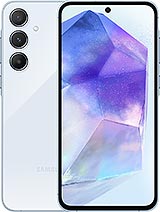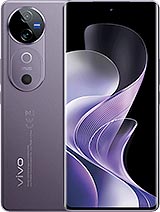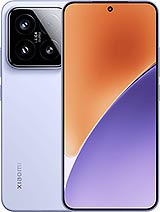Vivo V40 alternatives
Tap above to see alternatives.
Xiaomi 15 alternatives
Tap above to see alternatives.
1x2.63 GHz Cortex-A715
3x2.4 GHz Cortex-A715
4x1.8 GHz Cortex-A510
2x4.32 GHz Oryon V2 Phoenix L
6x3.53 GHz Oryon V2 Phoenix M
8GB 256GB (UFS 2.2)
12GB 512GB (UFS 2.2)
f/1.9, 24mm (wide), 1/1.56", 1.0µm, PDAF, OIS
50 MP
f/2.0, 15mm, 119˚ (ultrawide), 1/2.76", 0.64µm, AF
f/1.6, 23mm (wide), 1/1.31", 1.2µm, OmniVision Light Fusion 900, dual pixel PDAF, OIS
50 MP
f/2.0, 60mm (telephoto), 1/2.76", 0.64µm, S5KJN5, PDAF (10cm - ∞), OIS, 2.6x optical zoom
50 MP
f/2.2, 14mm, 115˚ (ultrawide), 1/2.76", 0.64µm, Samsung S5KJN1
1080p@30fps
4K@24/30/60fps
1080p@30/60/120/240/960fps
720p@1920fps
f/2.0, 21mm (wide), 1/2.76", 0.64µm, AF
f/2.0, 21mm (wide), 1/3.14", 0.7µm, OmniVision OV32B40
1080p@30fps
1080p@30/60fps
SIM1: Nano, SIM2: Nano
SIM1: Nano, SIM2: Nano
FDD: N1, N3, N5, N8, N28
TDD: N40, N77, N78
FDD: N1, N2, N3, N5, N7, N8, N12, N20, N25, N26, N28
TDD: N38, N40, N41, N48, N66, N75, N77, N78
FDD: N1, N3, N5, N8, N28
TDD: N40, N77, N78
FDD: N1, N2, N3, N5, N7, N8, N12, N20, N25, N26, N28
TDD: N38, N40, N41, N48, N66, N75, N77, N78
In this comparison, the Xiaomi 15 with the Qualcomm Snapdragon 8 Elite (3nm) performs better than the Vivo V40 with the Qualcomm Snapdragon 7 Gen 3 (4nm), thanks to its more efficient chipset.
The Xiaomi 15 offers 4 years of OS updates, while the Vivo V40 provides 3 years. When it comes to security updates, Xiaomi 15 leads with 6 years of support.
Both phones feature AMOLED displays. They have the same 120 Hz refresh rate. Vivo V40 also has a brighter display with 4500 nits, improving outdoor visibility. Notably, Vivo V40 has a higher resolution display, resulting in sharper visuals.
Vivo V40 has a larger 5500 mAh battery for longer usage. Xiaomi 15 supports faster wired charging at 90W. Xiaomi 15 supports wireless charging at 50W, while Vivo V40 lacks this feature.
Both phones have the same IP68 rating for water and dust resistance.












